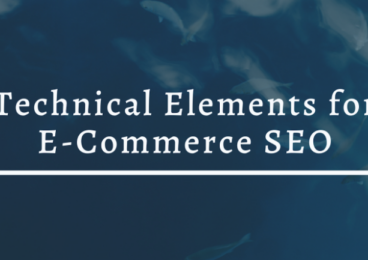 Reading Time: 5 minutes
Reading Time: 5 minutesPay-per-click (PPC) keyword research has come a long way since the early days of Google AdWords. What started as a simple process of brainstorming relevant terms has evolved into a sophisticated science that influences billions in online ad spending every year.
Today’s researchers leverage massive keyword databases, complex analytics, and machine learning to uncover strategic opportunities and get the highest ROI from their campaigns. By analyzing query volumes, predicted CPCs, trends over time, and more, they can target keywords that specifically cater to high commercial intent. This level of precision targeting would have seemed like magic only a few years ago.
Read on to learn some of the foundational PPC keyword research techniques and how they can take your advertising ROI to the next level.
What Are the Traditional Keyword Research Methods?
Here are some conventional methods for identifying relevant keywords:
Brainstorming
Brainstorming is a straightforward way to generate keyword ideas without using any tools. It involves listing keywords related to your topic or business by considering search terms a potential customer might use.
Pros
- It’s free and doesn’t require any special tools
- Allows you to tap into your existing industry knowledge
- Can produce unexpected long tail keywords in addition to common head terms
Cons
- You may overlook important keywords since brainstorming alone provides a limited analysis
Competitor Analysis
Analyzing your competitors’ websites and content is useful for discovering keywords for which they are successfully ranking. You can find keywords in domain names, page titles, headings, and competitor pages.
Pros
- Reveals actual keywords driving traffic to similar sites
- Highlight keywords your competitors focus on that could work for you too
- Often uncovers potential “winner” keywords with good search volume and low difficulty
Cons
- It can be time-consuming if you have many competitors to analyze
Using Keyword Research Tools
Keyword research tools like Google Keyword Planner, SEMrush, and Ahrefs provide aggregated search data and keyword metrics to inform your selection. They show search volumes, difficulty scores, and other metrics.
Pros
- Save a lot of time by synthesizing search data from major sources
- Provide insights like search volume trends and difficulty that are hard to obtain otherwise
- Many include advanced features like topic and cluster analysis, which makes it easier to create content targeting those keywords.
Cons
- Tools may have limitations on the number of queries or data freshness for free plans
New Data-Driven Approaches
Data-driven approaches leverage the treasure troves of user data available today to optimize paid search campaigns. As they allow your campaigns to target audiences on very specific criteria, the conversions from these campaigns are usually much higher.
Here are some to consider including in your own strategy:
Big Data Analytics
Big data refers to the massive amounts of digital data created daily from search queries, website traffic, social media, online reviews, and more. Search engines and other technology companies aggregate and analyze this huge amount of data to gain insights into consumer behavior and interests. This data is then made available in the Google ads dashboard for advertisers to use for their campaigns.
Some ways to leverage big data for keyword research include: analyzing search volume data from Google Trends and Keyword Planner to see which keywords are most popular nationally or locally.
By leveraging these big data sources that aggregate data across millions of users, you gain a more comprehensive view of search behavior and demand.
Advantages
- Identifies rare, long-tail keywords with high commercial intent that see little organic competition
- Predicts search volume and competition for new or unfamiliar keyword ideas
- Continually refines keywords to drop poor performers and replace them with new high-potential alternatives
- Suggests keywords related to seasonal events, current affairs, or trending topics
- Incorporates semantic analysis to group keyword variants and synonyms
Disadvantages
- Overreliance can fail to consider contextual factors or creative campaign strategies
Machine Learning Algorithms
Machine learning algorithms are a powerful type of artificial intelligence that allows computers to learn from large amounts of data without being explicitly programmed.
Search engines and other technology companies continuously feed search query data into machine learning models to better understand user intent. For advertisers, algorithms developed through machine learning open up new possibilities.
Some ways machine learning enhances keyword research include: developing related keyword suggestions. As you identify seed keywords, algorithmic models suggest additional related and complementary keywords to target based on patterns found in search data.
Machine learning is also used to generate keyword clusters – grouping semantically and competitively related keywords to help marketers develop comprehensive keyword strategies around topics.
Advantages
- Automatically identifies clusters of complementary keywords for broader campaign targets
- Detects meaningful correlations between keywords, placements, and conversions
- Optimizes bid and budget allocation based on real-time performance data
- Provides recommendations tailored to advertiser’s business and customized goals
- Predicts future search behaviors and demand based on past volume patterns
Disadvantages
- Black-box nature can lack transparency on how conclusions were reached
Semantic Keyword Research
Semantic keyword research refers to analyzing related keyword groups and concepts rather than isolated search terms. This approach recognizes that searchers may use different wordings to express the same informational needs. Knowing these semantically related keywords is important for modern PPC campaigns.
Tools like Google Keyword Planner and SEMrush offer semantic keyword discovery features. They analyze search patterns and linguistics to surface terms with high conceptual similarity, even if they don’t share the same words. This allowance gives you a more comprehensive view of the full landscape of search intent around a given topic.
Armed with semantically tied keyword groups, you can expand the reach and relevance of your paid search campaigns.
Voice Search Optimization
The rise of voice assistants like Siri, Alexa, and Google Assistant has ushered in a new era of search: voice search. A 2024 study by SerpWatch found that around 50% of searches are voice searches. However, voice queries differ significantly from traditional typed keywords. They tend to be longer, more conversational, and use natural language versus precise truncated terms.
To optimize for voice, you must diversify your PPC keyword lists to include more conversational, descriptive queries. You should also focus ad copy on answering full questions versus promoting products alone.
Testing longer match types that consider keyword context, like phrase and broad, can improve voice clicks. Monitoring query data from voice devices is another best practice for evolving voice targeting.
AI-Powered Keyword Research
Artificial intelligence is beginning to transform PPC keyword discovery through its ability to analyze massive amounts of data. AI-powered keyword research tools leverage machine learning algorithms to generate keywords in bulk with a single command.
Some key advantages include:
- Automatically generates related and semantic keywords without human input, significantly expanding coverage
- Predicts emerging and niche search trends based on patterns in query data over time
- Suggest bids and match types for new keywords based on goals and historical campaign performance
- Integrates data from multiple sources beyond search volumes, like website analytics and external surveys
- Provides personalized recommendations specific to business, goals, and market factors vs generic data
- Continuously optimizes suggestions as algorithms learn from user feedback in real-time.
These tools can also take a more holistic view of the customer journey and identify keywords aligned with each stage, from awareness to conversion. This can empower you to be more proactive versus reactive in paid search.
Cross-Channel Keyword Research Integration
With consumers frequently hopping between devices and touchpoints, marketers need a unified keyword strategy across channels like SEO, paid search, display, social, and voice. Integrating multiple channels in your broader campaigns gives a full picture of buyer terminology and intent throughout the customer experience.
Leading tools now integrate keyword data and recommendations from various sources for unified cross-channel planning. This coordinated approach is invaluable for marketers targeting consumers who constantly switch between screens and assistants throughout their decision journeys.
Conclusion
With search engines like Google continuing to adapt their algorithms as consumer searching habits evolve, you need keyword research methods to keep up.
While foundational research techniques like keyword difficulty and search volume are still relevant, the future of PPC keyword research likely involves even more advanced predictive analytics.
These data-driven approaches can predict keyword CPC trends, automate the theme and layout of keyword lists, or even suggest new long-tail keyword opportunities on the fly, which can be tremendously helpful.
In the future, effective paid advertising strategies will likely leverage predictive data combined with traditional keyword metrics to optimize keyword portfolios.
At Vizion Interactive, we have the expertise, experience, and enthusiasm to get results and keep clients happy! Learn more about how our status as a Google Partner, along with our PPC Management, Google Shopping Ads, Social Media Advertising, Amazon Advertising, and other Paid Media services can increase sales and boost your ROI. But don’t just take our word for it, check out what our clients have to say, along with our case studies.




